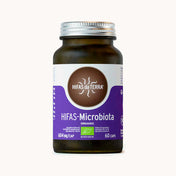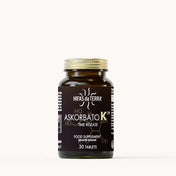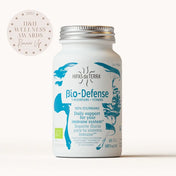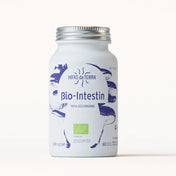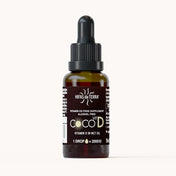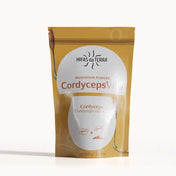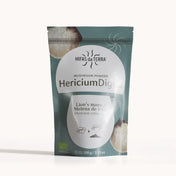If you still wonder what is between Immunity and intestinal microbiota, you are in the right place.
Like the mucosa protects us from the entrance of viruses and bacteria through the respiratory tract, The intestinal mucosa It protects us, from the inside, other pathogens that have crossed external barriers.
How do you do it? Thanks to the Intestinal microbiota, that great community of beneficial microorganisms that inhabit us and that act as a fingerprint - they are unique and non -transferable - fighting new threats.
HIFAS DA TERRA EDUCATION 02/9/2021
Content index
See this post on Instagram
What relates the immune system to microbiota and intestinal health?
A weakened immune system It is generally a reaction from the body to several factors that affect us daily such as the stress, temperature changes, the Lack of sleep And, importantly, changes or excesses in our diet.
What foods can activate the immune system and intestinal flora?
The narrow link between the diet (due to its direct implication on the balance of the microbiota) and immunity causes us to focus on the consumption of certain nutrients, prebiotics and bioactive substances who can have a Significant impact on the daily care of immunity. As you will see in the following lines, the Medicinal fungi They have a lot to offer about it, keep reading and you will see why.
What links immune system and intestinal health?
A weakened immune system It is generally a reaction from the body to several factors that affect us daily such as the stress, temperature changes, the Lack of sleep And, importantly, changes or excesses in our diet.
The narrow link between the diet (due to its direct implication on the balance of the microbiota) and immunity causes us to focus on the consumption of certain nutrients, prebiotics and other bioactive substances They can improve Our immune system.
The effect of intestinal microbiota on immune health
In Hifas da Terra, like Biotechnology experts and the study of fungi, we highlight the bioactive substances present in many of the medicinal fungi species we investigate.
Fungi have been appreciated for their benefits for thousands of years in traditional Chinese medicine and, at present, what we know as "Mycotherapy”(The use of health compounds) is being generalized.
Because? Fungi contain minerals such as magnesium, selenium, zinc or potassium; Vitamins c, B and provitamin d, as well as essential amino acids.
See this post on Instagram
The effect of intestinal microbiota on immune health
There are many natural substances that can help us in the maintenance of the intestinal microbiota. In Hifas da Terra, like Biotechnology experts and the study of fungi, we highlight the bioactive substances present in many of the medicinal fungi species we investigate.
Fungi have been appreciated for their benefits for thousands of years in traditional Chinese medicine. Because? Fungi contain minerals such as magnesium, selenium, zinc or potassium; vitamins C, B and provitamin D, as well as essential amino acids.
Substances of interest with action on the immune system
- Vitamin c. The Vitamin C properties in the immune system, and specifically about Viral respiratory infections, such as common cold and flu, they have been widely studied for more than half a century. In addition, this vitamin has a Antioxidant activity because it blocks part of the damage caused by free radicals.
- Vitamin d. Traditionally known for their role in the health of bones, in reality, it is equally essential for our defenses. His Deficit has been related to a greater incidence of infections respiratory.
- Zinc. In a study conducted in 575 people with common cold, supplements administration with Zinc reduced the duration of the cold in 33%.
- Prebiotics. 70 % of immune cells are in the intestine Therefore, including prebiotics in the diet helps balance the intestinal microbiota and favor the response of the immune system. Sometimes they are enough small imbalances of this intestinal flora or microbiota, accompanied by a drop in defenses, to facilitate the entry of microorganisms and the Appearance of diseases.
- Beta-glucanos. They are biological response modifiers capable of modulating the immune response, which has implications in protection against various diseases.
Discover Bio-Defense
The daily support for your defenses with prebiotics, zinc, vitamins C and D and Beta-Glucanos. Buy it now with a 10% discount with the coupon Defenses23.
The beta-glucanos They are the most prominent bioactive substances in the composition of fungi. These are considered Immunomodulators, restoring the balance of the different components of the immune system.
In other words, we could say that Thanks to them, our immune system receives soldiers and generals that help you organize and fight.
In summary....
Our immune system is composed of complex and interconnected systems that can be determined from the quality of our dream to the state of our skin.
In this sense, Our intestinal health plays a fundamental role in supporting immune health And, therefore, a good diet and a healthy microbiota are fundamental for immunity.
Research has shown that fungi have a lot of substances of interest.
If you are interested in this post you can subscribe HERE to ours Newsletter And you will receive articles like this and others of interest in your email.
- Beta-Glucanos: Immune regulators and cardiovascular protectors
- Hemilä, H., & Chalker, E. (2013). Vitamin C for Preventing and Treating the Common Cold. The Cochrane Database of Systematic Reviews, (1), CD000980.
- Hemilä H. (2017). ZINC LOZENGES AND THE COMMON COLD: A META-ANALYSIS COMPARING ZINCTATE AND ZINC GLUCONATE, AND THE ROLE OF ZINC DOSAGE. JRSM Open, 8(5), 2054270417694291.
- Zosky, G. R., Berry, L. J., Elliot, J. G., James, A. L., Gorman, S., & Hart, P. H. (2011). Vitamin D Deficiety Causes Deficits in lung function and alters lung structure. American Journal of Respiratory and Critical Care Medicine, 183(10), 1336–1343.
- Beyhan-Sagmen, S., Baykan, O., Balcan, B., & Ceyhan, B. (2017). Association Between Severe Vitamin D Deficiety, Lung Function and Asthma Control. Association of the severe vitamin D deficit with lung function and asthma control. Bronchopneumology archives, 53(4), 186–191.



